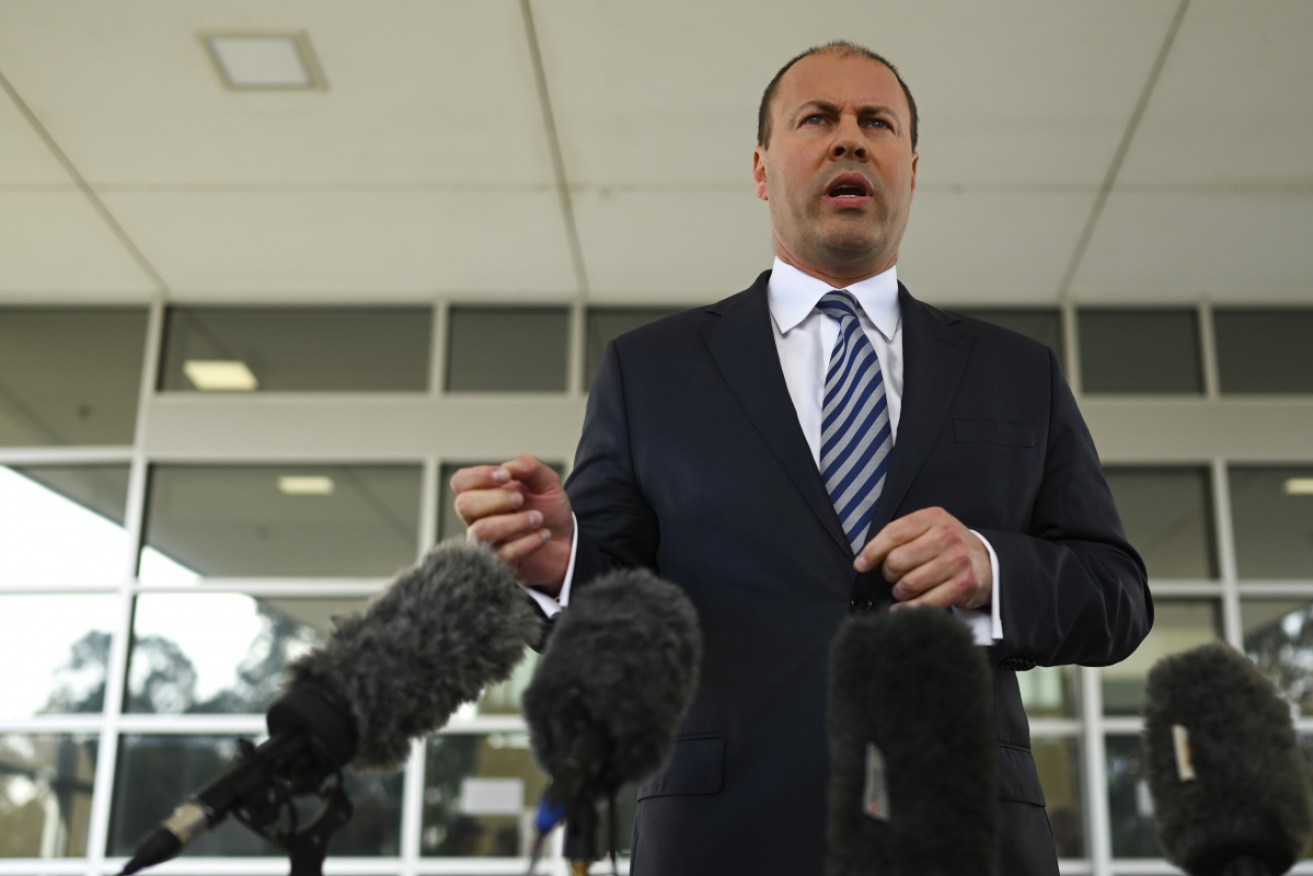Government has NDIS underspend to thank for near-surplus

Federal Treasurer Josh Frydenberg. Photo: AAP
Spending $4.6 billion less than expected on the National Disability Insurance Scheme has put Australia’s federal budget on the brink of surplus.
The final result for the 2018/19 financial year revealed a modest $700 million deficit – a $13.8 billion improvement on what was predicted when the budget was originally delivered in May 2018.
The result was built on the back of lower-than-expected spending on the NDIS, higher personal income tax receipts and strong iron ore exports.
Treasurer Josh Frydenberg said the government pulled in $11.5 billion more in receipts than predicted, and handed out $6.6 billion less in payments.
“More people in jobs and fewer people on welfare has driven higher receipts and lower payments as a result,” he told reporters in Canberra on Thursday.
But Labor says the budget result is built on the backs of people with disabilities still waiting for equipment and treatment.
Finance Minister Mathias Cormann revealed the coalition had doubled spending on the NDIS, not tripled as it was forecast to do.
That saved $4.6 billion in payments, which Senator Cormann said was the result of a slower-than-expected transition of people into the NDIS.
“Ultimately 100 per cent of the demand in the community will be met,” Senator Cormann said.
“Essentially at any budget updates you’ve got movements up and down, you’ve got demand that is higher than expected and you have to pay more; sometimes you’ve got demand that is lower than expected.”
But Labor disability spokesman Bill Shorten said the government was not telling the truth.
“The reality is, the demand is there. Go to speak with people in the communities and those watching and reading news today, they will be furious,” he told reporters.
He gave the example of a nine-year-old boy whose family had to use a wheelbarrow because he was awaiting an NDIS-supported wheelchair.
Labor’s shadow treasurer Jim Chalmers said with budget predictions so out of whack, it was time for an early mid-year financial update mini-budget.
“The government needs to bring forward the MYEFO to fix their forecast and responsibly fund a plan to turnaround the economy,” he told reporters.
BREAKING: Even with a $4.6 billion underspend on the NDIS propping up the budget, Josh Frydenberg and the Liberals have just handed down their sixth consecutive deficit. #auspol #ausecon #fbo
— Jim Chalmers MP (@JEChalmers) September 19, 2019
Mr Frydenberg said an extra 100,000 Australians in work had driven the $5.7 billion extra collected in income taxes.
But figures released an hour after Mr Frydenberg spoke showed the unemployment rate had ticked back up to 5.3 per cent, with most new jobs being part-time.
Company tax receipts were $4.6 billion higher than predicted, mainly due to mining profits, but Mr Frydenberg could not say how much was due to strong iron ore demand.
CommSec chief economist Craig James said interest rate cuts, the low Aussie dollar, tax offset payments and a lift in capital city home prices should create economic growth.
“If not, the government may need to look at fresh stimulus measures,” he said.
“A balanced budget in the next year may be more appropriate than producing a big surplus in the current fluky economic times.”
Australia has not had a surplus since the 2007/08 budget, which came back $19.7 billion in the black.
-AAP








